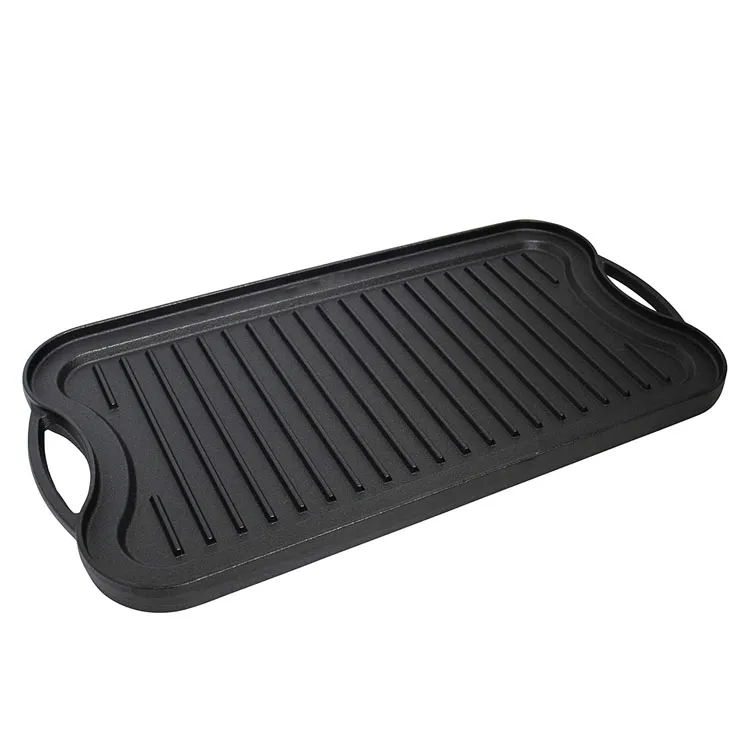
The Longevity and Strength of Cast Iron in Everyday Use
The Durability of Cast Iron A Comprehensive Exploration
When it comes to durability in materials, cast iron is often heralded as one of the most resilient options available. This alloy of iron, carbon, and silicon has been a staple in manufacturing and construction for centuries, appreciated for its robustness and longevity. In this article, we will explore the various aspects of cast iron that contribute to its great durability, its applications, advantages, and maintenance tips that ensure its longevity.
The Composition and Structure of Cast Iron
Cast iron is made by melting iron and alloying it with a small percentage of carbon, often between 2% to 4%. It also contains silicon, which enhances its casting properties. The structure of cast iron consists of a matrix of iron and carbon crystals, which can exist in different forms depending on the specific type of cast iron being produced. The most common are gray cast iron, ductile cast iron, white cast iron, and malleable cast iron. Each type offers unique properties but generally retains the core characteristics that make cast iron durable.
Exceptional Strength and Hardness
One of the primary reasons for cast iron's long-lasting nature is its strength and hardness. Cast iron components can withstand significant stress and strain without deforming. This makes it an excellent choice for applications such as engine blocks, pipes, and cookware. The hard surface of cast iron is resistant to wear and tear, which further extends its lifespan.
Additionally, cast iron has exceptional compressive strength, allowing it to bear heavy loads. This property makes it ideal for construction materials such as beams, bridges, and foundations. Over time, products made from cast iron tend to show very little wear compared to those made from other materials.
Resistance to Corrosion
Corrosion is one of the most significant threats to the durability of any material. Cast iron has a natural resistance to corrosion, primarily due to the formation of a protective patina. However, it is essential to note that this resistance can vary. For instance, gray cast iron tends to corrode more quickly than ductile cast iron. Properly maintaining and protecting the surface of cast iron from moisture and other corrosive elements, such as salt, can significantly enhance its lifespan.
In outdoor applications, items may be coated with protective paints or oil to further prevent rust formation. When exposed to outdoor elements, regular maintenance becomes an essential part of preserving the durability of cast iron structures and products.
is cast iron durable

Thermal Stability
Another significant advantage of cast iron is its ability to withstand extreme temperatures without deforming. This quality makes it a favored material for cookware, such as skillets and Dutch ovens—items that require reliable thermal performance. Cast iron distributes heat evenly and retains it for long periods, making it perfect for searing, baking, and frying. The material’s ability to handle heating and cooling cycles without damage further attests to its durability.
Versatility in Applications
The durability of cast iron goes beyond its physical properties; it is also known for its versatility. Cast iron is used in a variety of applications, including cookware, pipes, machinery, and decorative elements like gates and railings. Its adaptability in multiple industries shows that it can meet a wide range of demands without compromising strength or integrity.
Maintenance Tips for Longevity
To enjoy the lasting benefits of cast iron, proper care and maintenance are paramount. For cookware, it’s essential to season the surface to create a non-stick layer and protect against rust. This involves coating it with a thin layer of oil and heating it to create a polymerized layer of fat. For other applications, regular inspections and touch-ups of protective coatings can help prevent corrosion.
Moreover, it is advisable to keep cast iron products dry and store them in a moisture-free environment. Routine cleaning without harsh chemicals will also maintain the integrity of the material.
Conclusion
In summary, cast iron is undoubtedly one of the most durable materials available, thanks to its exceptional strength, resistance to corrosion, and thermal stability. Its versatility in various applications and the relatively simple maintenance requirements make it an attractive choice for both consumers and industries alike. Whether you're using it for cookware or industrial applications, investing in cast iron means choosing durability that can withstand the test of time.
-
Cast Iron Cookware Pancake Pan- ZD Cookware|Non-Stick, Even Heat, DurableNewsAug.02,2025
-
Cast Iron Cookware- Baixiang County Zhongda Machinery|Non-Stick, Heat RetentionNewsAug.02,2025
-
High Quality Kitchen Durable Black Round Cast Iron Cookware Pancake Crepe Pan With Wooden Handle|Non-Stick Surface&Heat RetentionNewsAug.02,2025
-
Authentic Traditional Chinese Wok for High-Performance CookingNewsAug.02,2025
-
Season Cast Iron Perfectly with GPT-4 Turbo TipsNewsAug.01,2025
-
High Quality Cast Iron Cookware - Baixiang County Zhongda MachineryNewsAug.01,2025


